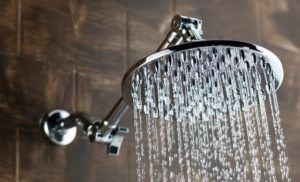If you’re a homeowner it’s a good idea to learn a few basics about how the plumbing works in your home. If you understand the basics of plumbing, you may be able to solve a lot of common household plumbing problems on your own, without having to consult a plumbing professional. The plumbing works a bit differently in every room in your home.
Bathroom Plumbing Basics
One of the most important things you can do to ensure that your bathroom plumbing is working properly is to maintain your faucet. You should replace or repair any leaking faucets as quickly as possible. If you don’t do this it can cause even more damage over time as well as wasting a valuable resource: Water. A leaking faucet wastes the same amount of water that’s required to take 180 showers! You should also keep your faucets clean. Lime and sediment can block the opening of the faucet and causes low water pressure or leaks. The part of the faucet that causes this problem is called the aerator (the ring that connects to spray head of the faucet where the water comes out). You can clean this small but mighty part of your faucet very easily. But first, you have to remove it. To do this, you have to turn the aerator counterclockwise. You should be able to do this by hand. If you have any trouble use masking tape or pliers. Remove the spray head from the aerator. Clean it with vinegar and then put it back together.
Keeping your showerhead clean is just as important as maintaining your faucets. The process of cleaning a showerhead is very similar to the process of cleaning the aerator of your faucet. Take apart the showerhead with an adjustable wrench or pliers. Clean the holes in the showerhead using a piece of thin wire. Then rinse the showerhead with clean water, before putting it back together.
In addition to maintaining your faucet and shower head, it is also important to maintain your toilet. It is easy to check your toilet for leaks with just a few steps. The first step is to adjust the fill valve if there is water running into the overflow pipe. Next, test the flush valve mechanism by putting a few drops of food coloring in the tank. If the water in the toilet bowl changes color it means that the ball or flapper of the toilet is leaking and should be replaced. And finally, do not flush things that should be placed in the trash.
Kitchen Plumbing Basics
Many of the same principles of plumbing that apply to the bathroom are true for the kitchen as well. Like in the bathroom, it is important to clean your faucet and aerator (see above). Never put food waste down the drain, unless you have a garbage disposal. You should also never pour liquid grease, down the drain, disposal or not. It will solidify and clog up your pipes.
Basement Plumbing Basics
It is important to know where the water shut off valve is located in your home. In most homes the shutoff valve is located where the water supply pipe enters the house through the basement floor. This is helpful to know in case you ever have to turn this off. Check your water meter for leaks. You should do this while no water is being used. Look at the meter again ten hours later. If the meter has moved it indicates a leak somewhere in your home. And finally, you should have your septic tank cleaned and inspected every three to five years to prevent the need for costly repairs.
Laundry Room Plumbing Basics
The laundry room is yet another area in your home where plumbing issues can occur. Here are few things to remember about the plumbing in your laundry room to help avoid problems. First, you should only run your wash machine on a full load. Check your washing machine’s hoses for wear and tear. Any rubber hoses should be replaced with stainless steel ones because they’re and more resistant to leaks or cracks. Examine exposed pipes under the sink for leaks. Sometimes you should also pour a bucket of water down the sink to ensure that the drain is working properly.
Plumbing Emergencies
While the tips mentioned above can be helpful, remember that you should always consult a plumbing professional for emergency situations. If you live in the Washington D.C. area and have a plumbing emergency, you can search for a qualified DC emergency plumber online or ask a friend or family member for a trusted recommendation.
http://plumberindc.com/understanding-how-the-plumbing-works-in-your-home/
